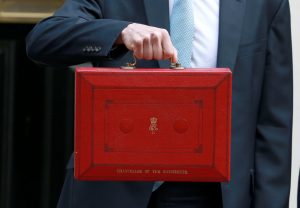Child Arrangements during lockdown – what should you do? What can you do?
It’s been almost 10 months since the first lockdown on 23rd March 2020 and we are now in lockdown number three. The government has again ordered people to stay at home, and not to travel unless essential to do so.
We receive several enquiries each week about how to handle arrangements for children to spend time with the other parent whether that be as a result of a court order or simply in accordance with arrangements that have been agreed and in place for some time. Parents want to do the right thing for their children, but it can be difficult to know whether the right thing is allowing your child to spend time with the other parent and potentially increasing the risk of contracting COVID-19 or not allowing your child to see the other parent but causing real heartache for your child, the other parent and perhaps yourself knowing your child is unhappy.
Can our children move between households
The government has made it quite clear that children may pass between parents for the purposes of contact/shared care arrangements. There is a view that the harm caused to a child in not allowing them to spend time with both parents outweighs the potential risk with COVID-19.
Sometimes, however, that risk is a real one. If the other parent or their household has a positive case of COVID-19, should you still allow your child to see the other parent? If you are isolating or have been advised to isolate because you have come into contact with someone who has contracted COVID-19, should your child still see the other parent? The guidance stipulates that if a household has a positive case of COVID-19, the child should not pass to the other parent and should if appropriate be isolating. Any arrangements, whether court ordered or otherwise, should be suspended.
The difficulty perhaps comes when there is no direction for an entire household to isolate but one member is advised to isolate (not your child) – should your child still be moving freely between households? The key here is communication. Discussing matters with your ex-partner and deciding what is the safest and least riskiest option to everyone jointly is advised. Every case is different and there are many factors to consider such as the risk to extended family or support bubbles.
Vulnerable individuals and Shielding
The guidance in relation to a child who is ‘vulnerable’ remains the same and may justify the cessation of or change to court ordered or regular arrangements to lower the risk to the child. Where one of the adult members of a household is ‘vulnerable’ and advised to shield, then again careful consideration needs to be given to suspension or change to usual arrangements. There is a fundamental principle in UK law that children should have a relationship with both parents unless there are exceptional circumstances. So, when making any decision about what you should do, you may wish to consider this underlying principle and the effect a loss of physical or face to face contact with one parent will have upon a child.
Whilst not strictly necessary, It may be advisable to record any agreement to alter arrangements in writing whether that be by text message or email so that if there is a dispute, there is a clear reference point.
Will the courts sort it out for me?
The court will only intervene is there is a dispute, but unless there is an extremely urgent reason for the court to decide the issue, a decision may not be made immediately and you will have to wait for a court hearing which may be several days, if not weeks. The courts are under extreme pressure and whilst you may feel a matter is urgent the court may not agree. If the matter does proceed to a court hearing, the court is likely to look at the government guidance at the time, the risks involved and apply a ‘common sense’ approach.
Whatever decision you make, and if you cannot agree matters with your ex partner, you need to consider whether you will be able to justify your position if the court is involved at some point. If the court feels that you have acted in a manner which was not in the best interests of your child, they could make further orders which you will have to adhere to.
If you need further information or assistance.
As always, if you do wish to discuss this or any other issue, the team at E J Coombs are available and will continue to offer any advice or assistance you require during the current health crisis. Please call us on 01245-221699 or email at enquiries@ejcoombs.co.uk Further contact information is on our contact page




